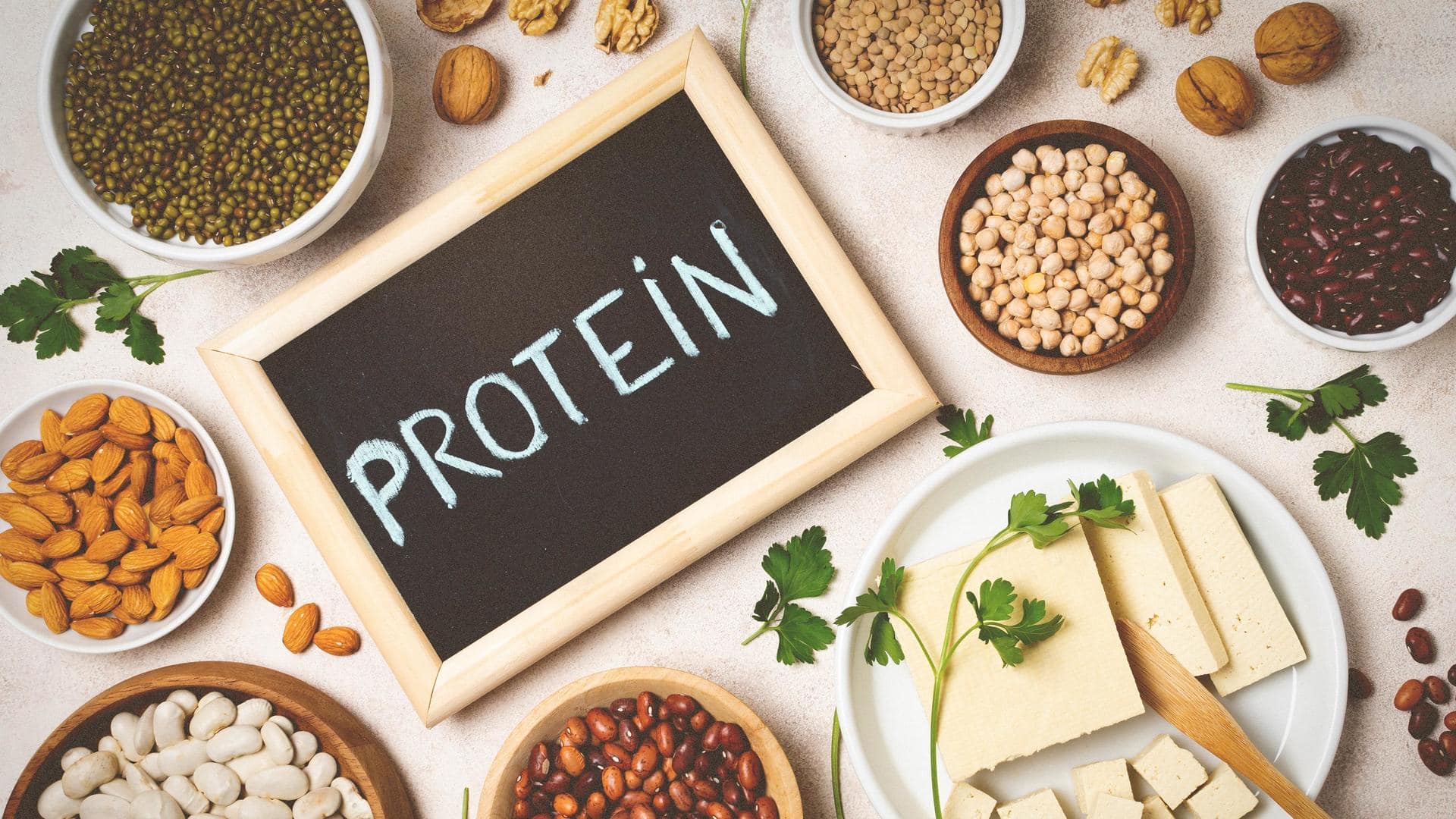
Plant-based proteins that need to be included in your diet
What's the story
An important part of one's diet, proteins help in keeping your muscles and other vital tissues healthy. Unlike in meat products, protein content is difficult to attain from plant-based diets. Hence, keeping up with protein content is extremely vital for all those who are following a vegetarian diet. However, there are plenty of protein-rich foods that are available for them to choose from.
Protein source 1
Nuts
Nuts are one of the healthiest snackable items one can enjoy over the day. Be it almonds, pistachios, cashews, walnuts, and hazelnuts, most of these are good sources of protein. Nuts also contain a reasonably good quantity of dietary fiber and vitamin E. Make sure to include nuts in your daily diet, and have them as is or as part of your meals.
Protein source 2
Chickpeas and other pulses
Chickpeas, one of the staple ingredients in most Indian households are rich in protein, containing around 7.25 g per ½ cup. Instead of chickpeas, you can also go with varieties of beans and pulses, such as kidney beans, black beans, green peas, etc. There are also reports which suggest that regular consumption of these can help reduce your bad cholesterol levels.
Protein source 3
Soy
Soy products are among the protein-rich vegan foods. These products, including soybeans, soymilk, and tofu provide essential amino acids that your body needs. Tofu (soybean curd) is often used as a meat alternative and contains around 10g of protein per half a cup. Meanwhile, soy milk is not just a good source of protein but also rich in calcium and vitamins.
Protein source 4
Lentils
Lentils contain up to 9g of protein per half a cup and are rich in vitamins, minerals, iron, and potassium apart from protein. Lentils, which can be added to a lunch or dinner routine can be consumed through curries, rice, rotis, soups, or salads among others. For a daily dose of protein, it is advisable to have a cup full of lentils.
Protein source 5
Oats
Oats are easy to prepare as there are many ways they can be incorporated into your diet plan. Half a cup of oats has nearly 6g of protein and 4g of fiber. Though not a complete protein, it provides overall nutrition to your body and helps in controlling cholesterol, blood sugar levels, and diabetes.